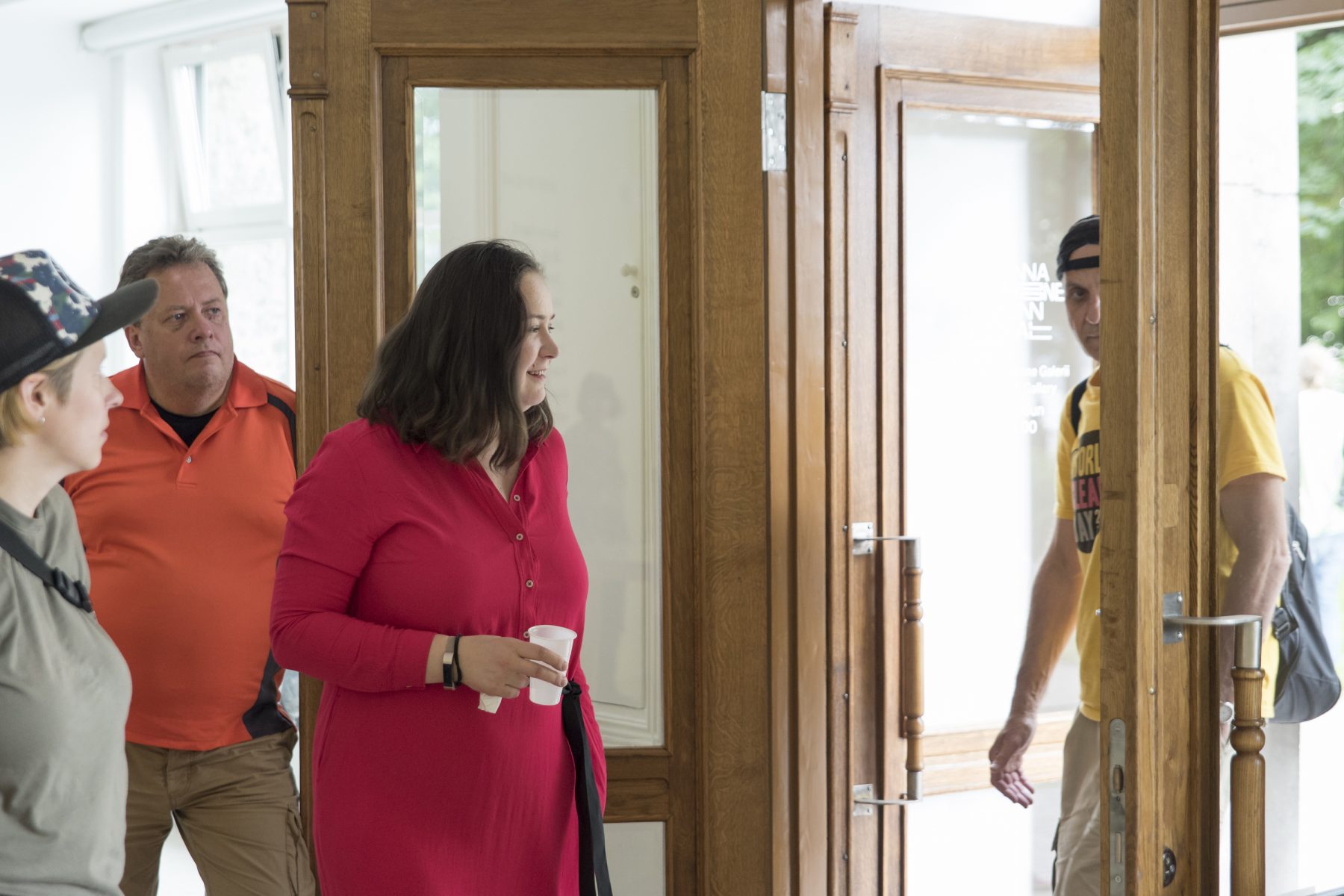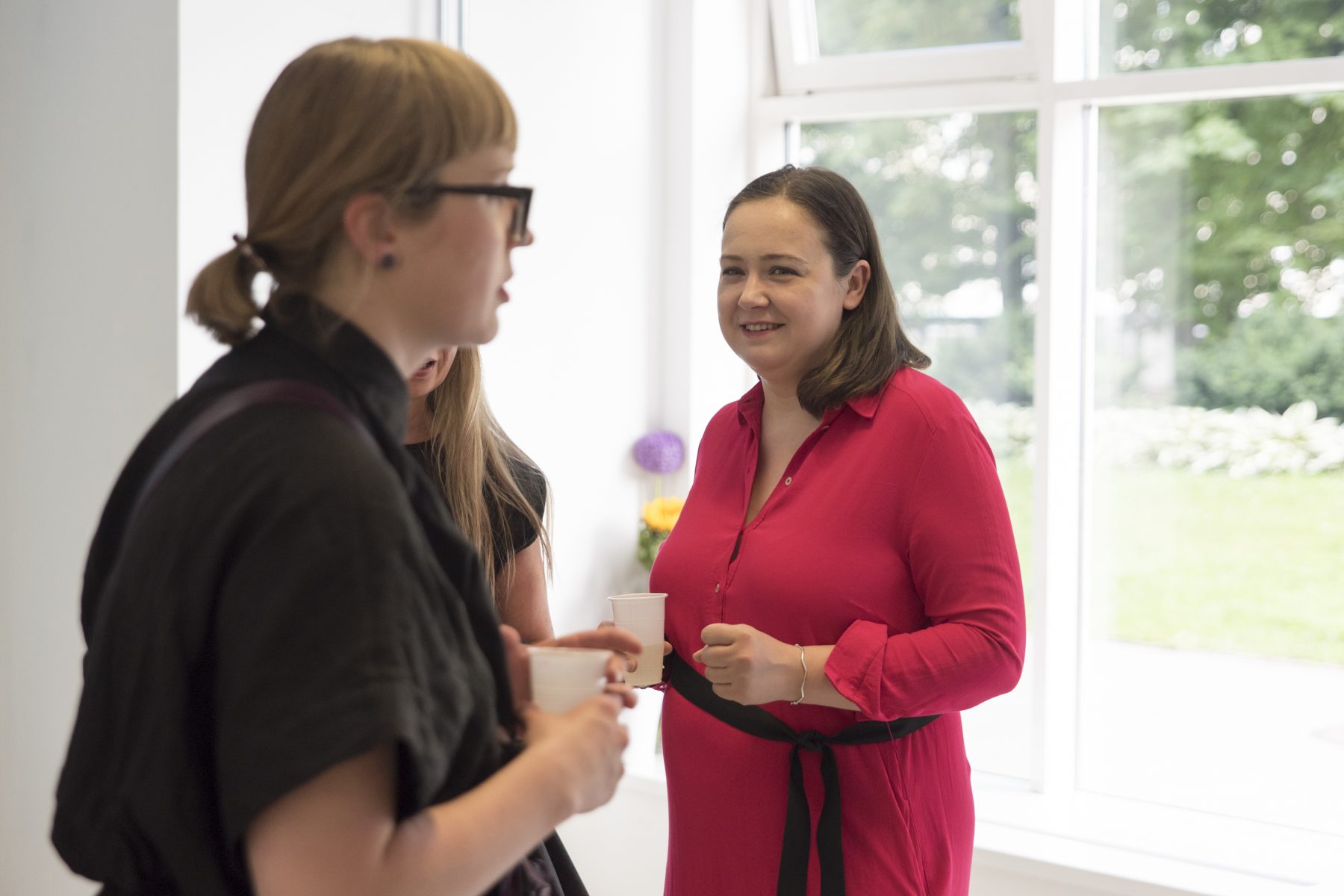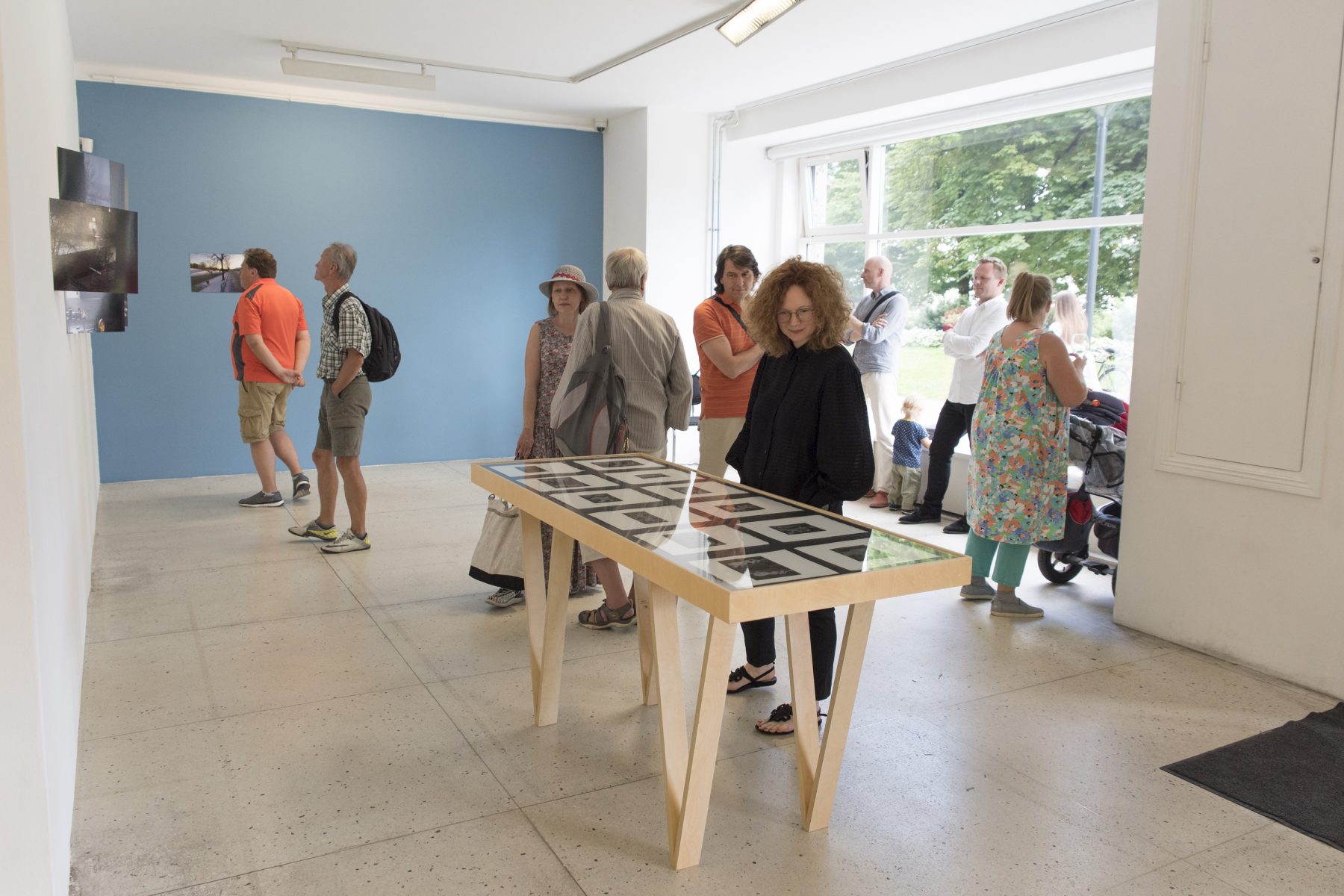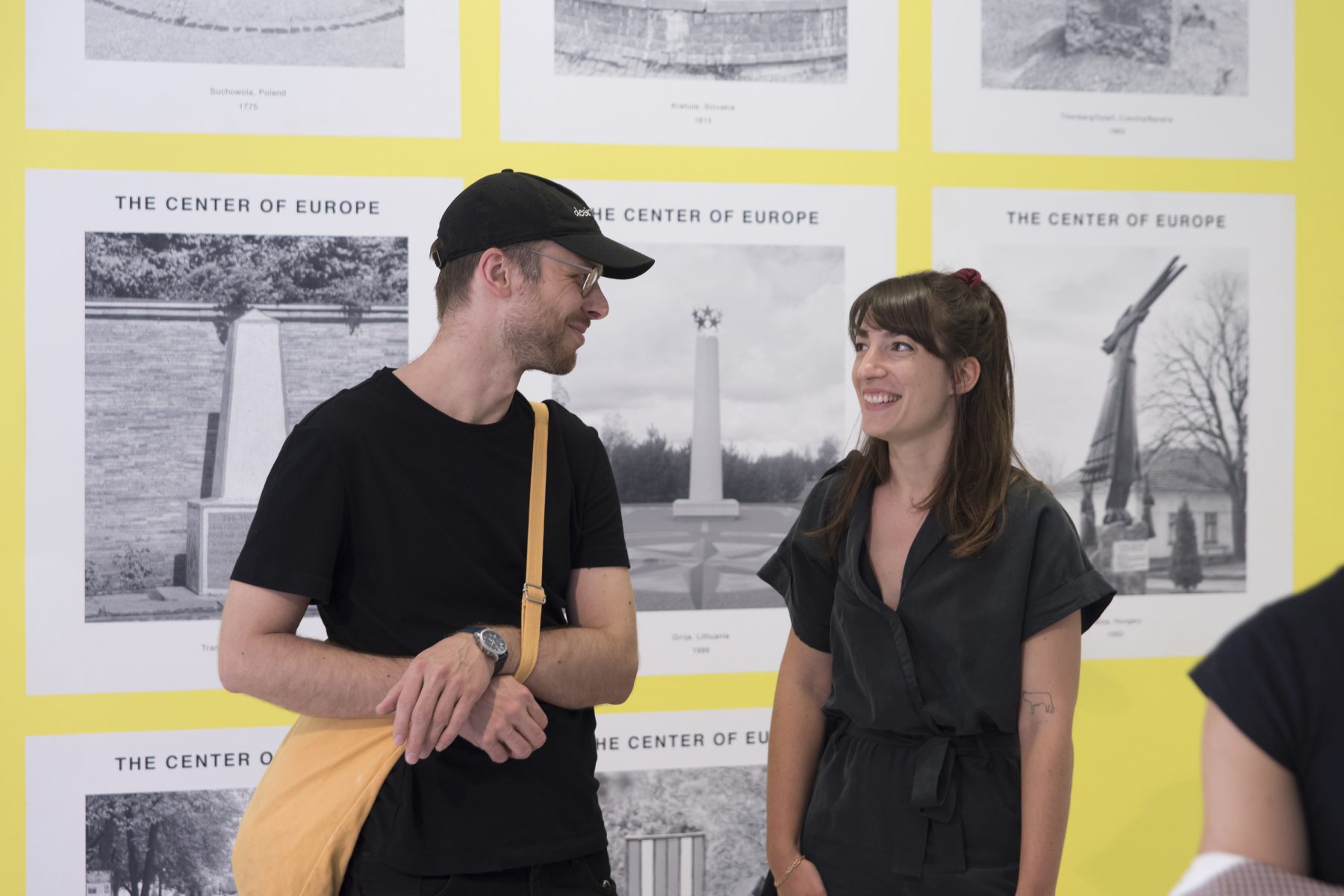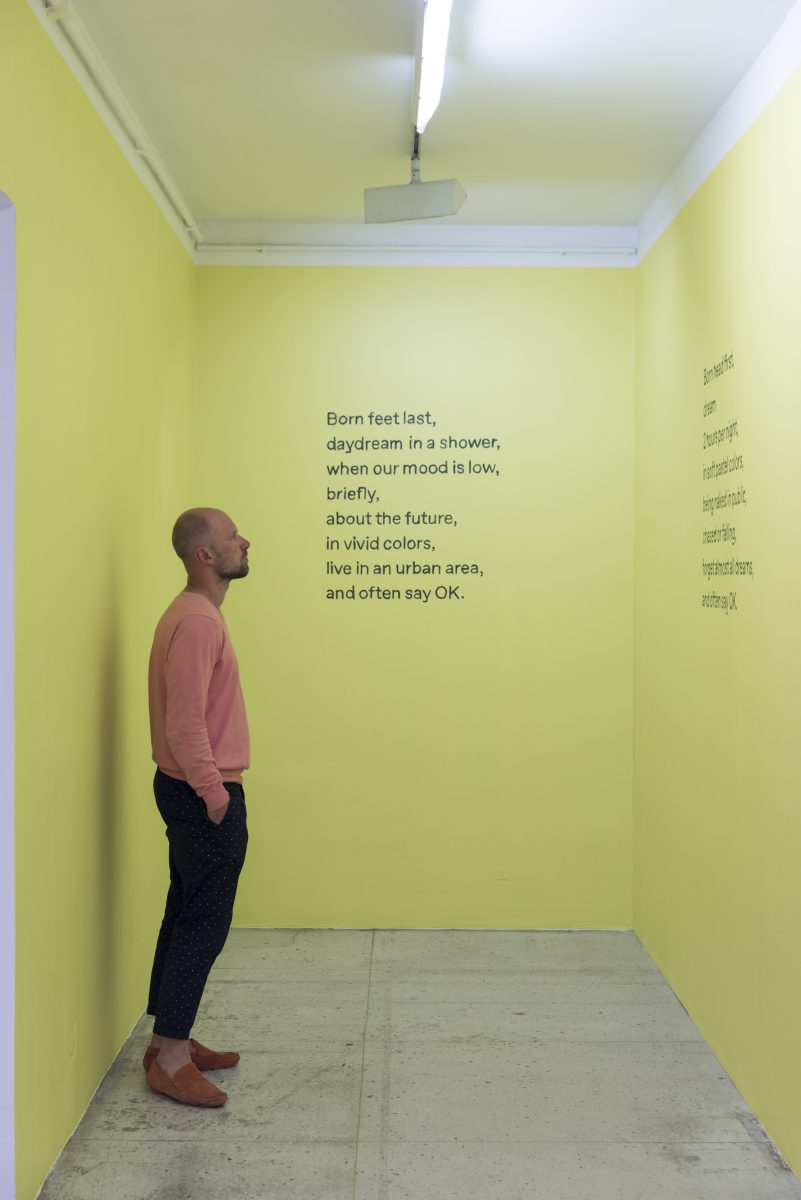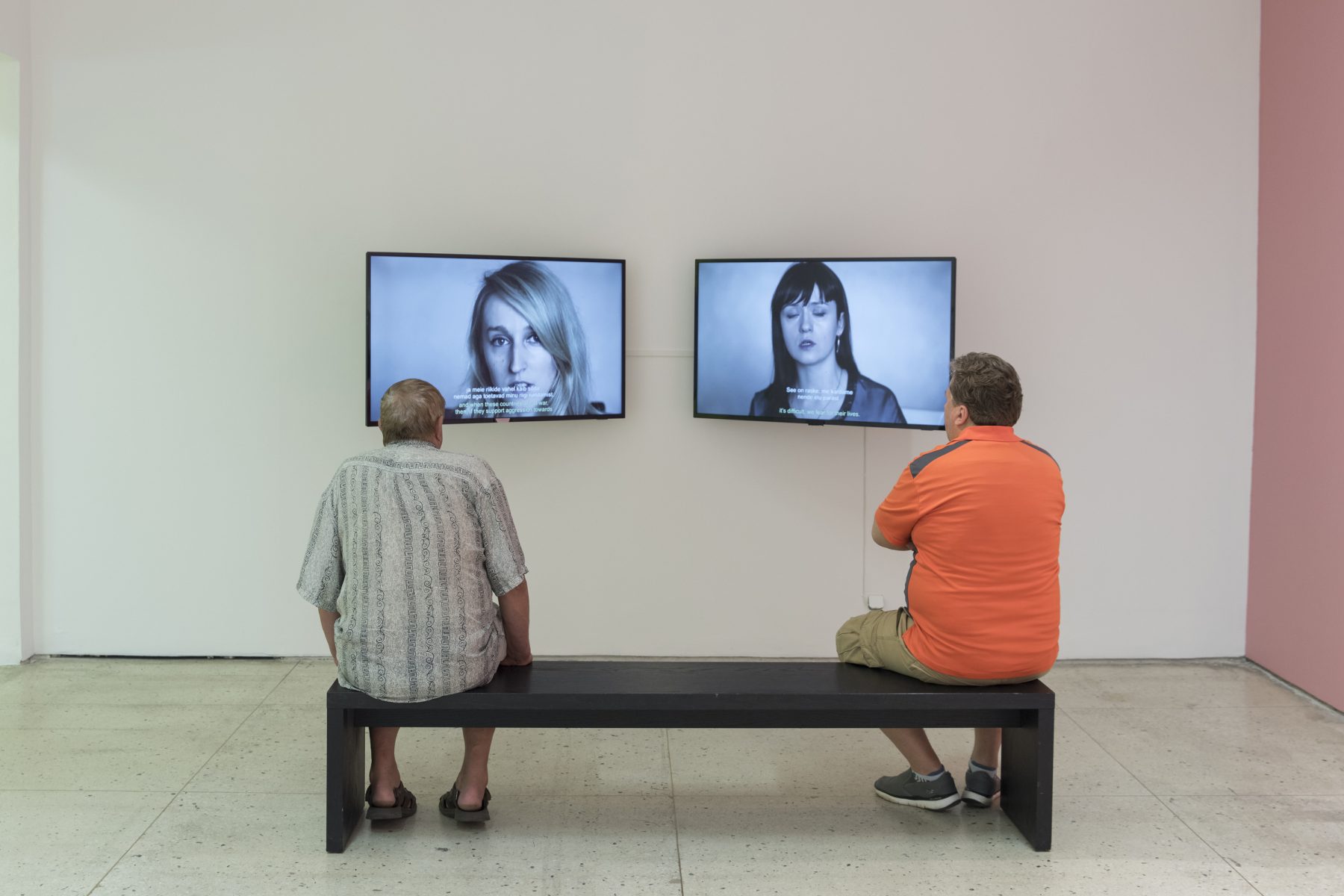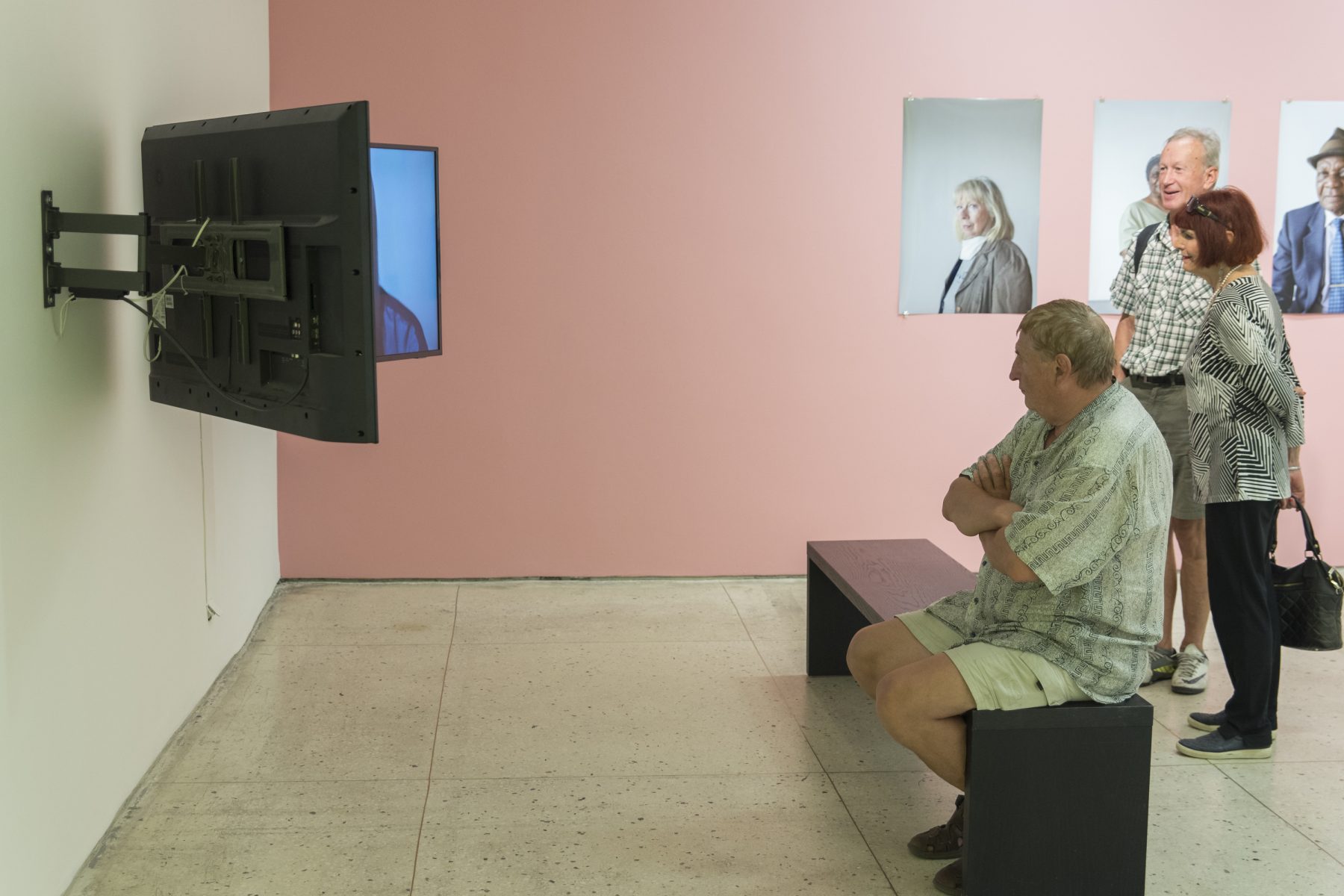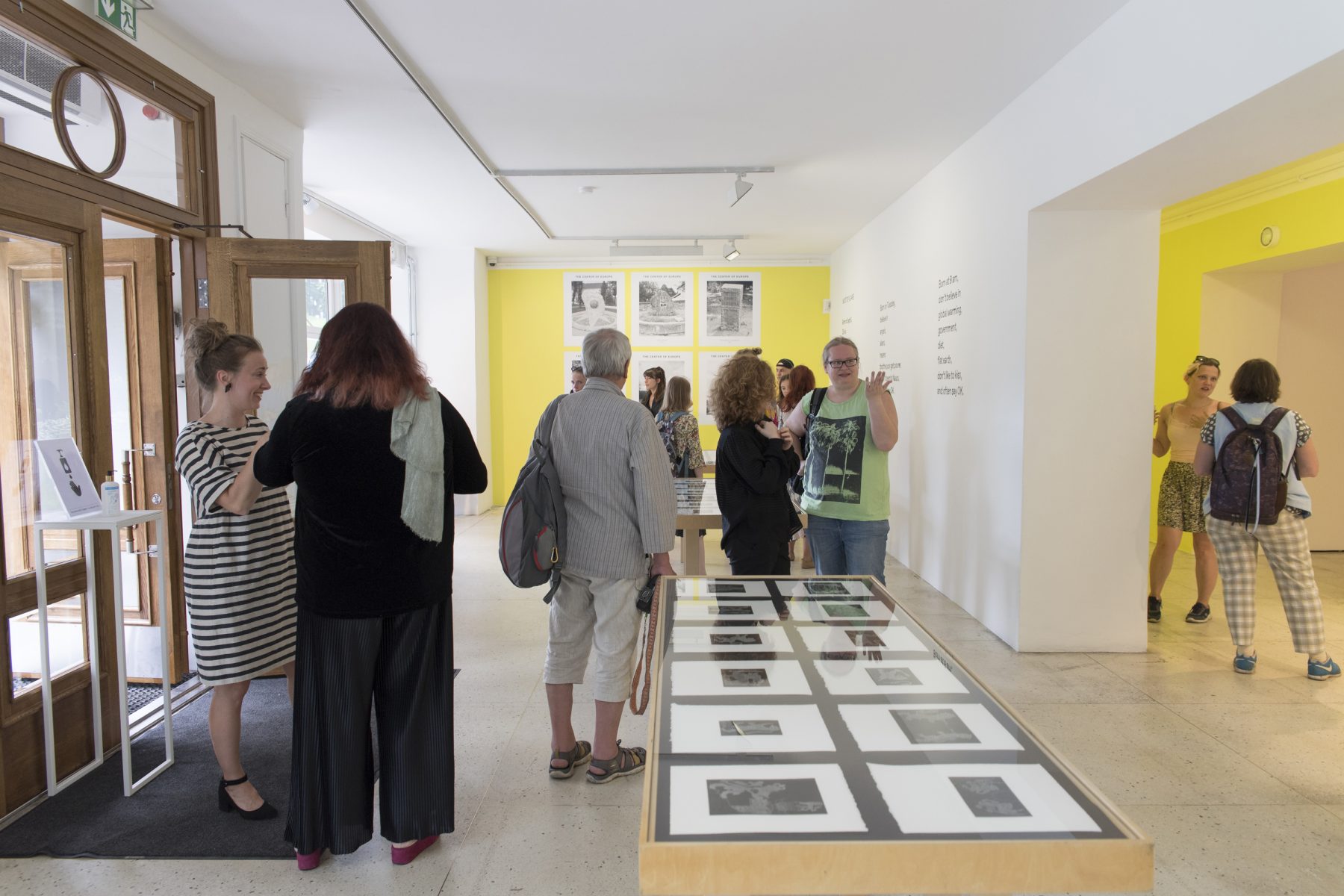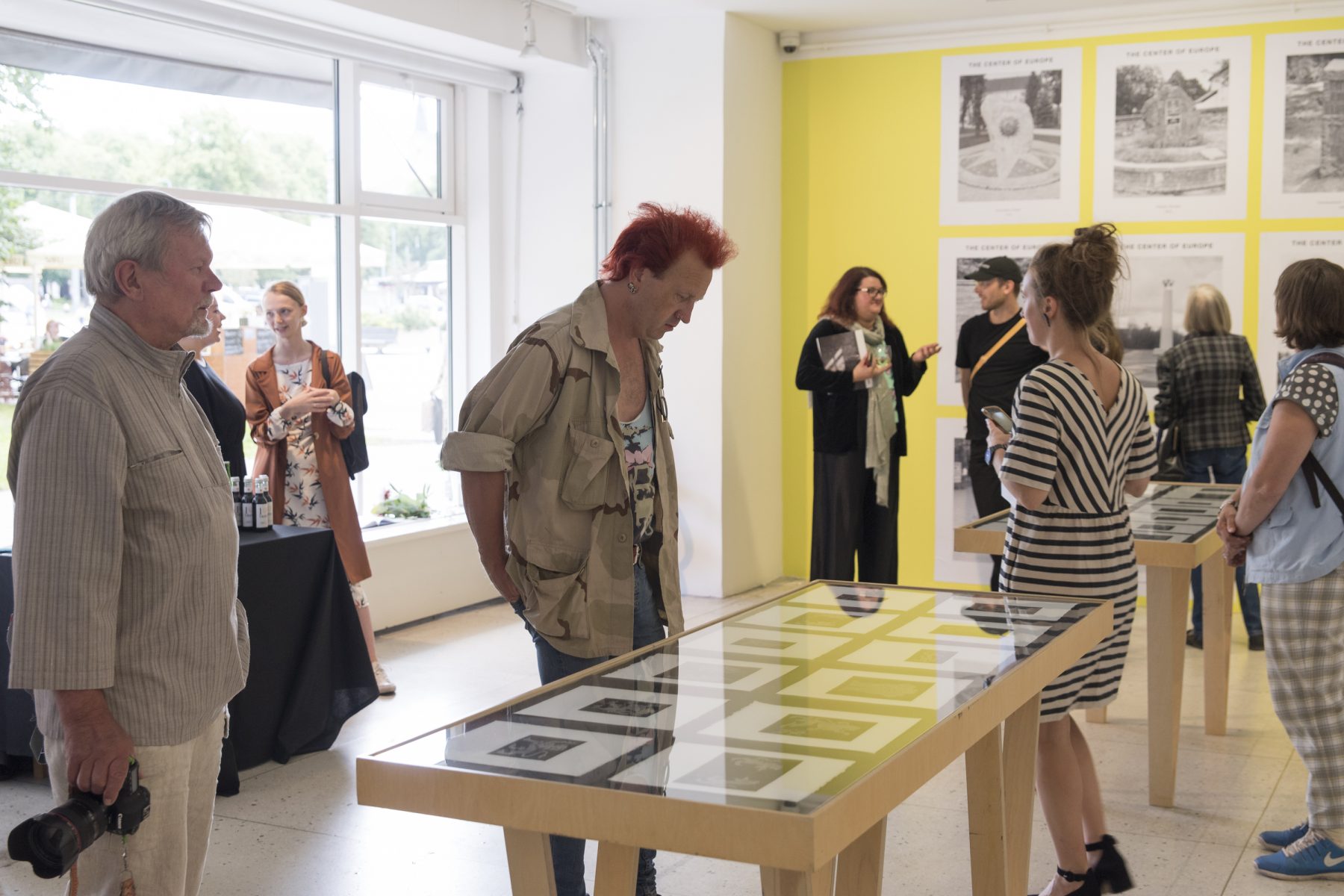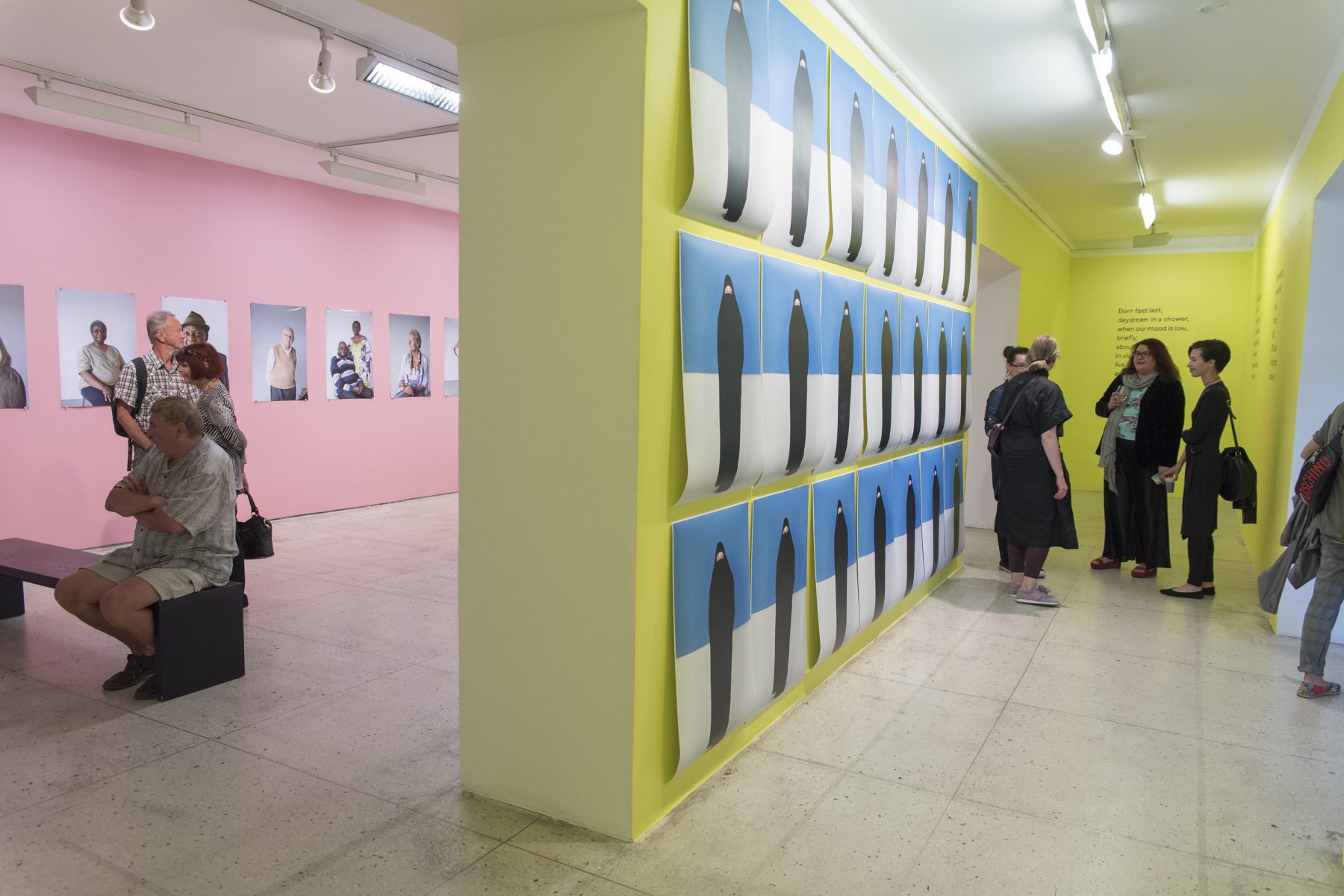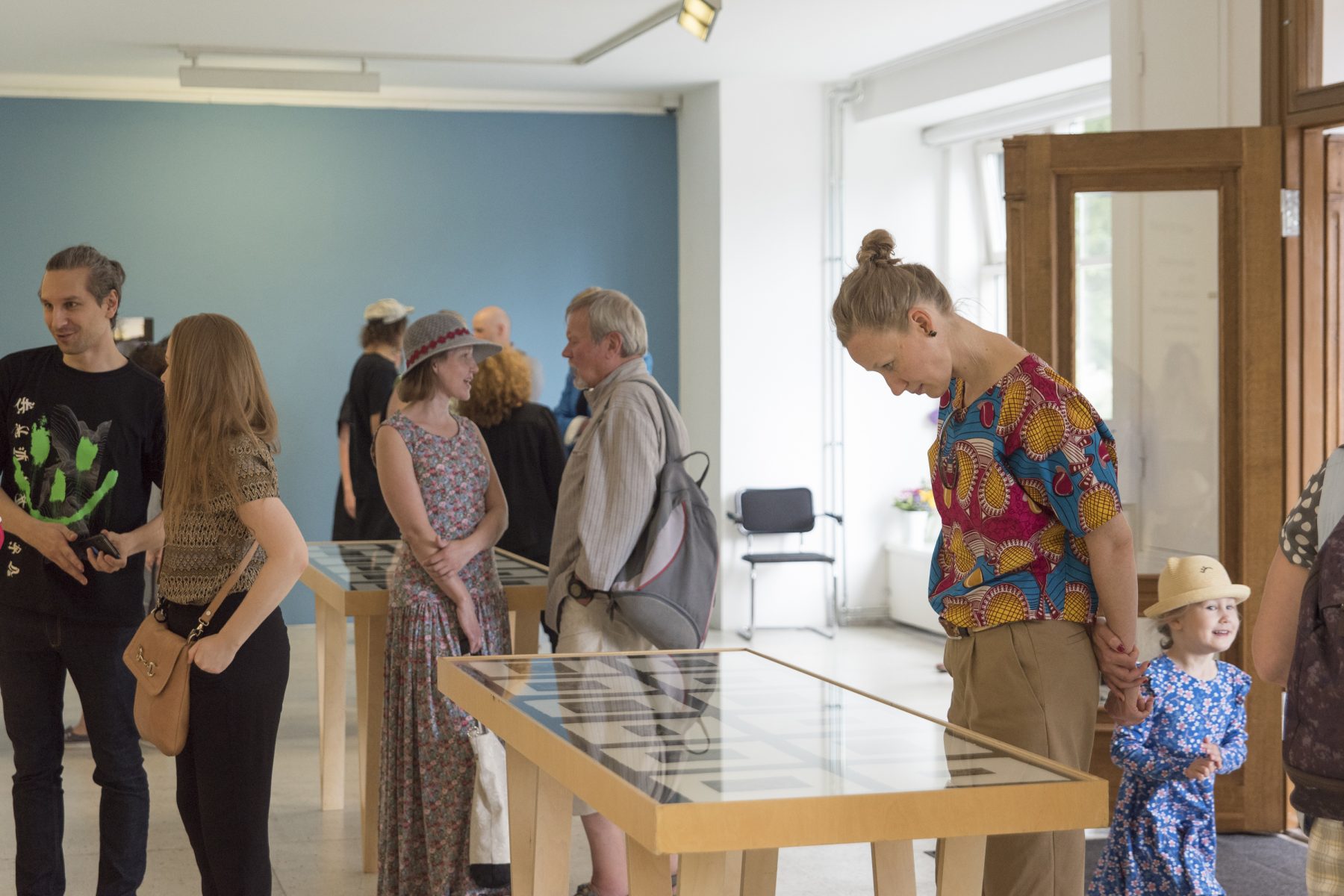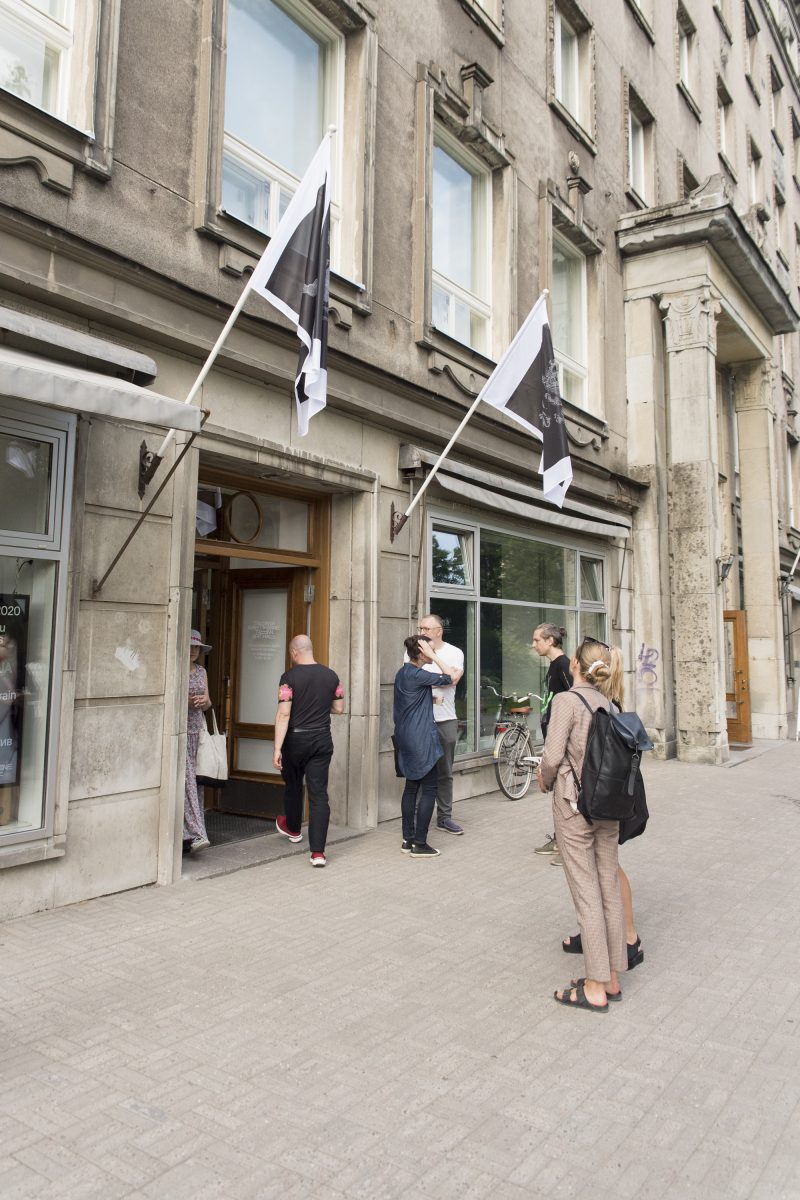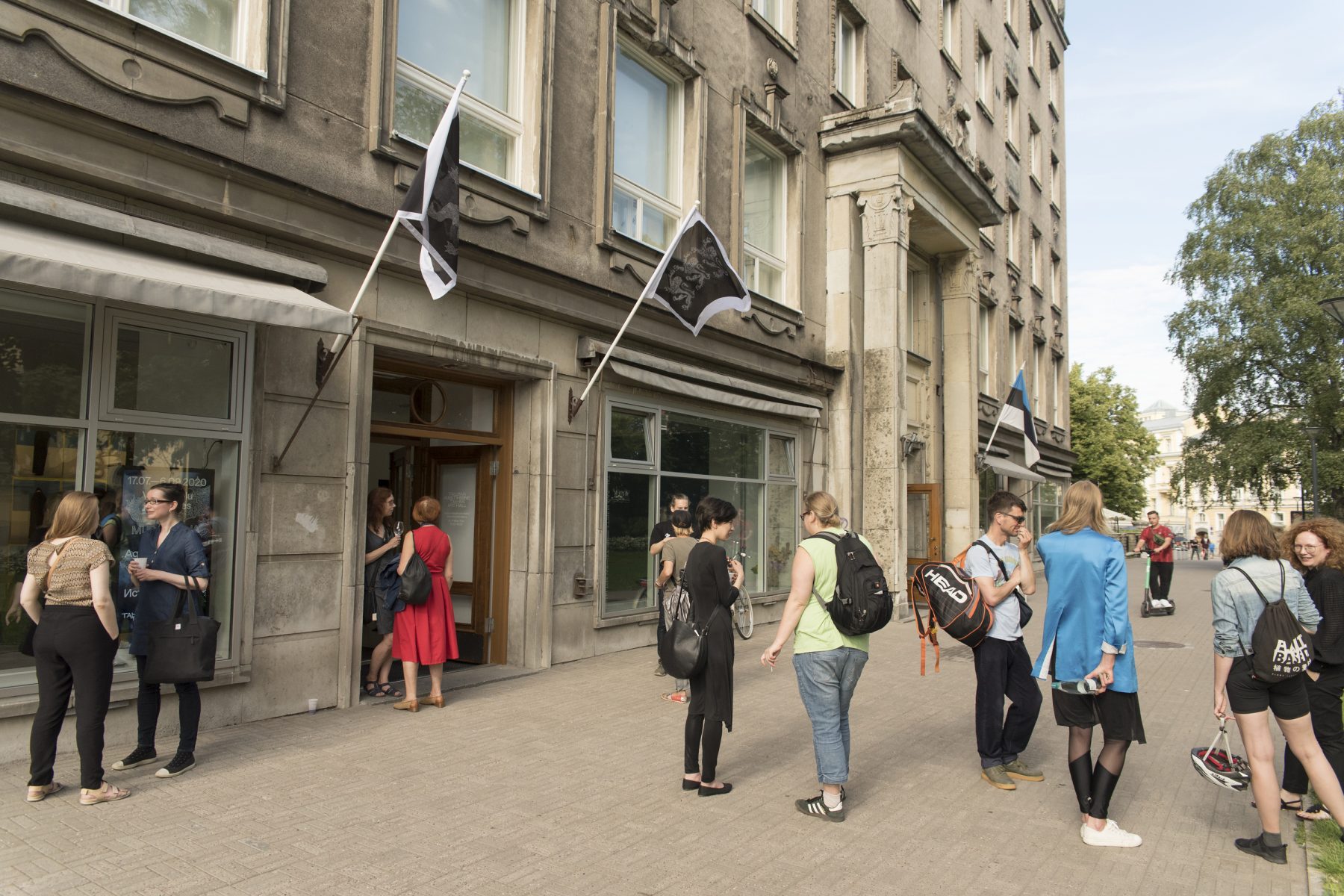Alina Bliumis and Tanja Muravskaja. Narrating Against the Grain
Curated by Corina L. Apostol
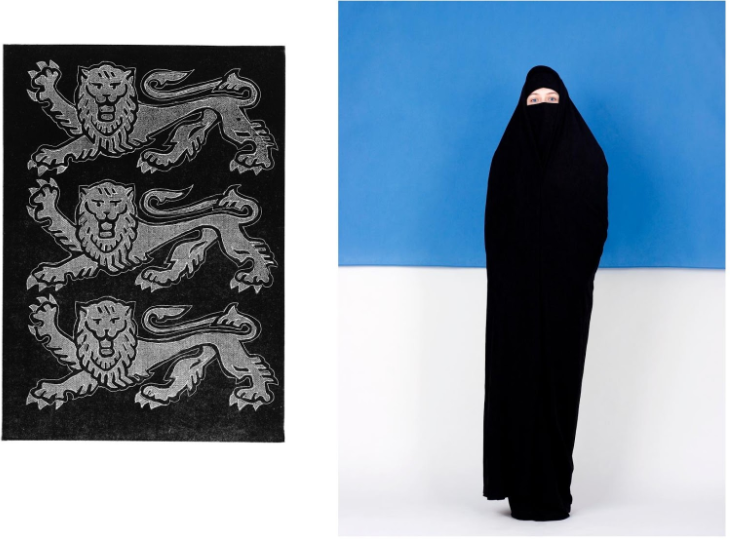
Where would you go if you wanted to see the centre of Europe? What are the traits of the average global citizen? What happens to our families when our political views are crossed? How can differences among us be re-defined in ways that enable resistance and creative activity for cultural change?
The “Narrating Against the Grain” exhibition features new commissions by Alina Bliumis and Tanja Muravskaja and will be open from 17 July until 6 September at Art Hall Gallery. The exhibition opening will take place on 16 July at 5 pm.
“Nations themselves are narrations,” observed Edward Said in Culture and Imperialism (1993), a statement that holds true in our current time. While conflicts continue to be waged over the ownership of land (and resources), issues of who has the right to work, live, settle and travel, and indeed the question of a nation’s future, are nevertheless echoed, challenged or even decided upon in narratives, both written and visual.
This exhibition brings together two artists who share the experience of growing up in Soviet Eastern Europe as well as a thematic interest in transcending borderlines, the constructed-ness of national identity, the entanglement of art and politics and the im/mobility of migrants. The global refugee reception crisis as well as the dramatic transformations in Europe during the pandemic have been catalysts for these artists to create artistic narratives that go against the grain and engage with forms of being in-between geographies and the struggle over self.
With humour and empathy, this project, the first collaboration between artists Alina Bliumis and Tanja Muravskaja, will introduce inventive forms of togetherness at the intersection of art, politics and education. The project specifically consists of a physical presentation of photographs and interviews of life under the pandemic with at-risk, vulnerable, resilient members of society, a series of banners emblazoned with different types of big cats from national passport covers presented at the gallery and partner cultural institutions (including Nõmme Cultural Centre, Estonian Art Academy, Museum of Photography, Tallinn Russian Museum) posters of different centres of Europe highlighting the shifting definitions of borders, and more.
While the physical exhibition will take place at the Art Hall Gallery and across Tallinn, the curator and artists will also engage audiences in lively online discussions on the consequences of the emergency state and reflect on the challenges and opportunities of mutual aid and solidarity, as well as new modes of engaged citizenship.
The exhibition will grapple with the possibilities that art and culture offer and respond to current reimaginings over citizenship and homelands. Building upon the experiences of two artists who share a personal history of migration across cultures and borders that have greatly influenced their work, the exhibition will help facilitate exchanges that will have a lasting effect upon public opinion. Ultimately, “Narrating against the grain” aims to reflect upon the contingencies of our time, urging all of us to take an active role as agents of change.
The curator of the exhibition is Corina L. Apostol.
Alina Bliumis is a Minsk-born, New York-based artist. Alina received her BFA from the School of Visual Art in 1999 and a diploma from the Advanced Course in Visual Arts in Fondazione Antonio Ratti, Como, Italy in 2005. Alina has exhibited internationally at the Musée national de l’histoire de l’immigration, the First Moscow Biennales of Contemporary Art, Busan Biennale, Assab One, the Bronx Museum of the Arts, Galerie Anne de Villepoix, Centre d’art Contemporain Meymac, the James Gallery, The Graduate Center CUNY, Museum of Contemporary Art (US), Museums of Bat Yam, the Jewish Museum, the Saatchi Gallery, Botanique Museum Belgium, the Victoria and Albert Museum, MAC VAL – Musée d’art contemporain du Val-de-Marne. Her works are in various private and public collections, including MAC VAL – Musée d’art contemporain du Val-de-Marne, France; Musée national de l’histoire de l’immigration, France; The Victoria and Albert Museum; Moscow Museum of Modern Art, Russia; Bat Yam Museum for Contemporary Art, Israel; The Saatchi Collection, UK; The Harvard Business School, USA; The National Museum of American Jewish History, Philadelphia, US, and Missoni Collection, Italy.
Tanja Muravskaja is a Tallinn-based artist, whose work proceeds from an analytic approach and psychological observation – be it the psychology of an individual, society, or a place. In her artworks, she tackles such topics as identity and memory, as well as relationships between society and its members. While being concentrated on photography, the medium’s qualities, and its agency in contemporary art, she creates installations that evolve into total environments and embrace the viewer. Muravskaja studied photography at the Estonian Academy of Arts and the University of Westminster. She also studied journalism at Tallinn University. Her works are represented in the collections of Art Museum of Estonia and Tartu Art Museum. Muravskaja is the winner of the Köler Prize 2018 Grand Prix, which was jointly awarded to her and Anna Shkodenko at the Contemporary Art Museum of Estonia. From January to June 2020, she was a resident at the WIELS Contemporary Art Center in Brussels, Belgium. Her recent exhibitions include “The Tuglas’s Home Garden Through Tanja Muravskaja’s Camera Lens” (Kumu Art Museum, 2019), “Three Sisters: Tanja Muravskaja” (Tensta Konsthall, 2019), Art Encounters Biennial (Timișoara, 2019), “Viral Self-Portraits. Online exhibition” (Moderna galerija MG+MSUM, 2020), “The Isolation Dialogues” (Estonian Museum of Photography, 2020).
This exhibition is part of a multi-year cycle which focuses on post-Soviet space and history, addressing questions related to the resurgence of nationalism(s) and conservatism(s) after 1991, the development of local art and cultures on the background of transition, dialogues between a generation which matured during the Soviet period and one which has no immediate experience of it, as well as other significant aspects of the Soviet cultural heritage.



